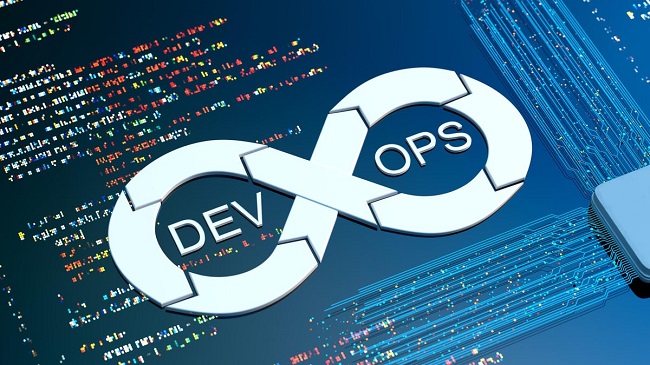The procedures, equipment, and cultural concept referred to as DevOps can be used to automate and combine the processes of IT teams and software development teams. It puts a lot of focus on team empowerment, cross-team communication, and technology automation.
Concerns regarding the traditional Software development methodology, in which developers developed code independently of operations, which disseminated and supported the code, were raised around 2007 by the software development and IT operations groups.
The DevOps movement was thus born as a result of this. DevOps, a combination of the phrases “development” and “operations,” represents the process of combining various disciplines into a single, continuous activity.

How DevOps Operates
You can hire DevOps developers teams for development and operations are no longer “siloed” under a DevOps framework. These two teams can occasionally be combined into a single unit where the engineers work across the whole application lifecycle, from development and test to deployment and operations, and gain a variety of abilities that are not specific to a single role.
Through the course of the program, security and quality assurance teams may work more closely with development and operations in some DevOps models. When security is the team’s major concern, they are referred to as DevSecOps.
Read Also:
To automate laborious and manual operations from the past, these teams use procedures. They make use of a technology stack and tooling that speed up and ensure the reliability of the operation and evolution of applications.
A team’s velocity is further increased by the usage of these tools, which allow engineers to autonomously execute activities (such as providing infrastructure or delivering code) that previously required support from other teams.
DevOps Principles
- A software development lifecycle that is automated. The provisioning of development environments, testing, builds, releases, and other manual operations that could impede the delivery of software or introduce human mistakes are all included in this.
- Communicating and working together. An excellent DevOps team also has strong cooperation and communication skills, in addition to automation.
- Constant development and waste reduction. High-performing DevOps teams are constantly searching for ways to make improvements, whether it be automating repetitive operations or monitoring performance data for methods to shorten mean times to recovery or release timeframes.
- With short feedback loops, hyperfocus on user needs. DevOps teams are able to take a step back and concentrate on what actual users truly want and how to deliver it through automation, enhanced communication and cooperation, and continuous development.
DevSecOps Definition
DevSecOps is a type of DevOps that automates and continually integrates security throughout the whole DevOps lifecycle, from planning to feedback and back to planning. DevSecOps is, to put it another way, what DevOps was meant to be all along.
Yet integrating security knowledge into cross-functional teams (a culture issue) and integrating security automation into the DevOps lifecycle were two of the early, significant (and for a while insurmountable) obstacles of DevOps adoption (a technical issue).
In many DevOps techniques, security came to be seen as the “Team of ‘No'” and as a costly bottleneck. DevSecOps is a dedicated initiative to integrate and automate security as it was designed to be.
Security is seen as a “first-class” stakeholder and citizen in DevSecOps, alongside development and operations, and it is integrated into the development process with a product emphasis.

DevOps Benefits and Features
By automating and optimizing the software development management process, enterprises may innovate more quickly. Making modest, regular updates is a core DevOps approach. Compared to changes made using conventional release procedures, these updates are typically more gradual.
Updates are released far more frequently by companies adopting a DevOps approach than by companies that use conventional software development methods. The foundational elements of DevOps practices are cooperation and communication.
The processes and responsibilities of development and operations are physically brought together through the automation of the software delivery process to build collaboration. The ability to communicate between developers, operations, and even other teams, like marketing and sales, enables the entire Business to coordinate objectives and projects more.
Read Also:
Conclusion
DevOps improves the efficiency, speed, and security of software development and delivery when compared to conventional practices. An agiler software development lifecycle gives businesses and their clients a competitive edge.



















